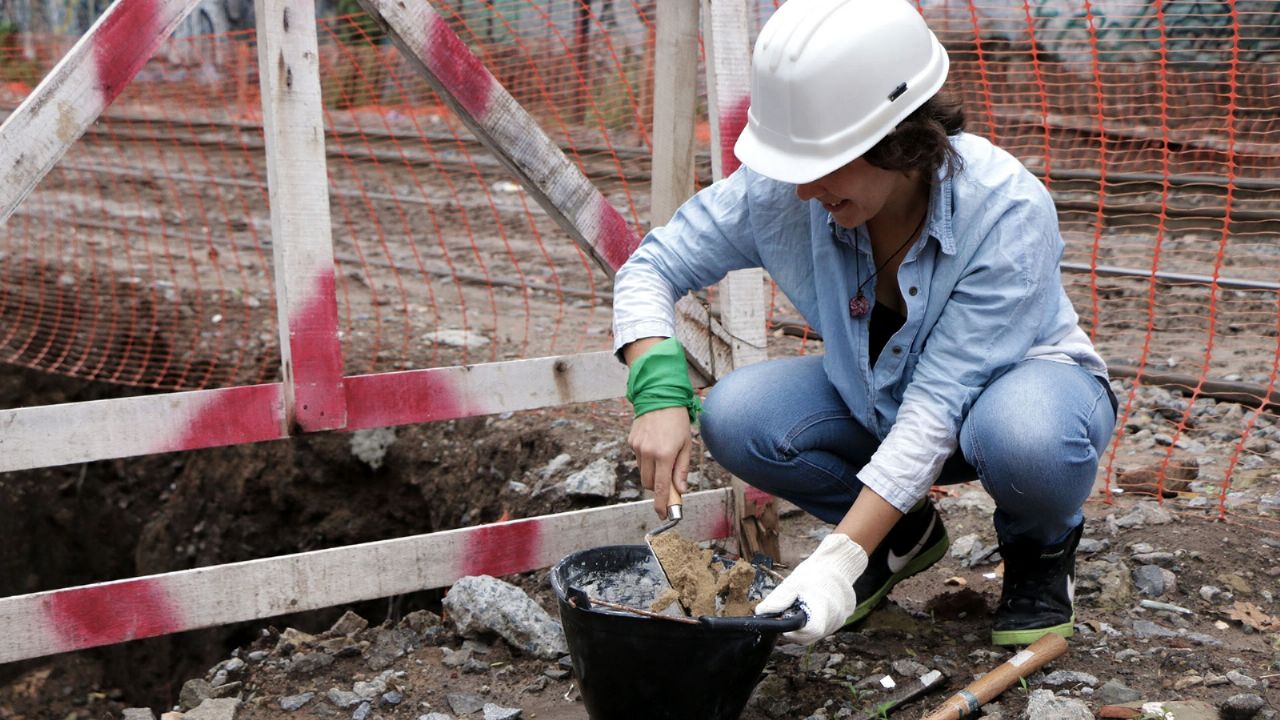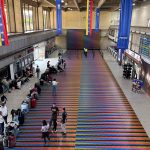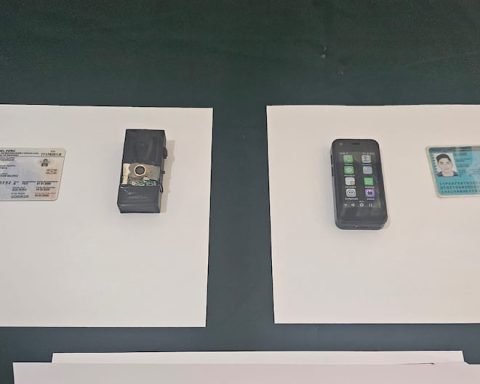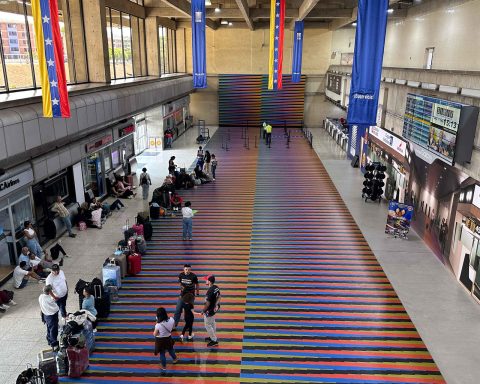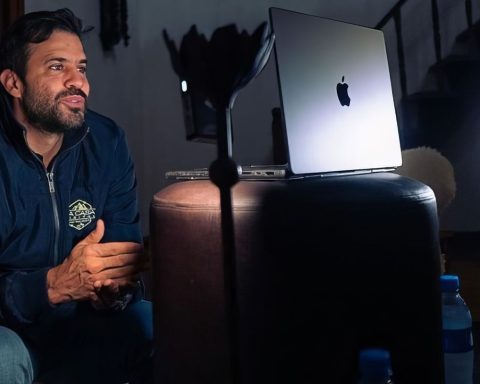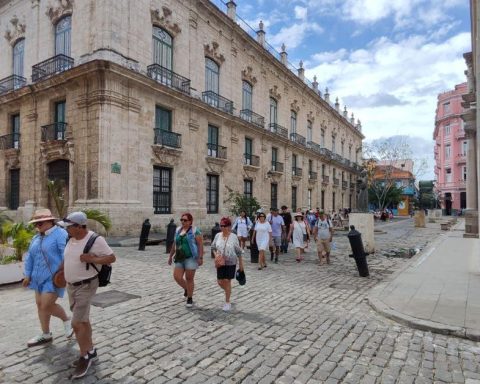Women at Work (MO) is a civil association, based in the city of Santa Fe, with more than one year of legal life but with four years of existence. The project was born from the idea of Ileana Rossi, its founder, who as an architect found that she was the only woman on the job.
From there, and wondering why more women were not linked to the field, Rossi managed to unite her interests with that of several of her architect friends from the Universidad Nacional del Litoral, who immediately found themselves not only committed to the project, but also with the imminent need to get more women to join the sector at work. This is the purpose of Women at Work.
In this way, and also with the idea of uniting experiences and knowledge to train other women, Women at Workan organization that, in addition, has been in charge of identifying the main barriers for this population in the construction industry.
Yamila Garzón, general coordinator of the project, in an interview for Minuto Argentina, narrated that from the beginning this initiative exceeded all expectations, not only because of the scope it had, but also because, within the same work they do, they found that there is a lot There is a long way to go and plenty of reasons to take action and eliminate the barriers that women have in this trade.
In essence, through this initiative, women can be trained in different topics related to construction. Women with or without experience in the field can be linked to these trainings and, to the surprise and satisfaction of the organization, from the time their first training was given, they realized that there are many women interested in the subject.
“From four years ago to now, we have seen a very important trend of women who are interested in the different construction profiles,” says the coordinator. However, she also highlights that an important part of her work is to ensure that companies in the sector understand the importance of providing employment opportunities for women, which has also changed in recent years.

Currently, the team the organization It is made up of women volunteers, who give their knowledge, experience, time and dedication to make the project grow, both in the city of Santa Fe —where all their work began— and in the city of Paraná, where they have been working since last year.
In order to train women in issues related to the construction trade such as blacksmithing, painting, hygiene and safety, carpentry and dry construction, among others, They work hand in hand with the public and private sectors and other social institutions, who are a fundamental part of their work..

Through these organizations with which they articulate, they manage to obtain resources, materials and others to be able to carry out the training they offer. But beyond training more women in the trade, they also seek to democratize knowledge.
This is because they recognize that not all people have access to education and, by providing it, they want to “bring training spaces closer to other people who do not have the same possibilities”, for which they also work on a rotating basis in different areas of the city. .
The importance of promoting gender equality from the legal point of view
Beyond the training, the organization seeks to achieve gender equality in the sector, because there are many barriers to access to a job in the field for this population, mainly due to a cultural issue, since historically there is a social construction that only men can work in this trade.
Likewise, there are economic and wage gaps for the female population, since women generally earn less than their male counterparts. But, in addition, there is a great vacuum in legal terms, since companies prefer to hire men for things like “women get pregnant, they cannot make the same physical effort or expose themselves a lot to the sun.”

Although these excuses seem like a cliché, as Yamila assures in an interview for this newspaper, the truth is that these legal loopholes promote discrimination and inequalityTherefore, it is essential that the regulations are also adapted to women, since it is currently created only for the male gender.
“We have heard of many companies that have not hired women because the regulations require that there must be a bathroom for women and a bathroom for men, so to save costs they rule out women.”

Although they seem empty arguments, unfortunately, the current regulations do not support a greater incursion of women into the sector, which in turn promotes inequality, so it is essential that there be a clear regulation that reduces or eliminates all these barriers.
In this sense, the role of the public and private sectors is essential, which is why Yamila highlights that an essential part of her work has been precisely to achieve this type of articulation so that the organization grows, trains, and helps more women.

However, it also recognizes that for true social and cultural change to take place, it is necessary to address the issue from the public sphere, in order to exert greater pressure on companies to promote gender equalityboth in this and in other trades.
“If the State does not rush or pressure or does not provide incentives for companies to take up the issue of gender within their organization chart or their structure, they will not do it on their own if they have no other interest, so for us the issue , which is extremely complex, has to be approached from all angles, because if you pull from one side but you don’t pull from the other, or you are on pause, there will be no progress”.
Although getting to where they are today has not been easy, and this process has been full of challenges, the work of each of their volunteers as well as of all the women who have been linked to the training stands out, which that motivates them not only to grow more, but also to go further every day.
This, since the organization, in addition to promoting training spaces, has served as an incentive for women to motivate themselves and venture into the field, since its message and the synergy generated in the work team and in the training itself helps empower yourself.

Though the project he was forced to take a break due to the coronavirus pandemic —since all the trainings are practical and face-to-face—, thanks to his work, Women at Work It has managed to train more than 500 women and, even with limited places, they have realized that every day there is a greater demand regarding the subject.
Likewise, all this interdisciplinary team that makes up the organization fights to be “the change they want to see in the world”, with which they also call on all citizens to take action to transform society and thus, every day, achieve remove more of those barriers that many populations face.

Yamila points out that the most challenging part of this entire process has been managing to coordinate all the volunteer work with few resources, which can sometimes limit their work. However, she stresses that despite all the challenges they face daily, in May 2020, in the midst of a pandemic, a local company invited them to be part of a personnel selection process to incorporate the first crew of women on site.
For this reason, every day, as a team, they are convinced that they must continue their work, not only to break down the barriers of inequality, but also because of the impact that this generates in their personal and professional lives and, of course, so that more women have the opportunity to be trained and linked to the field and, in this way and from their place, contribute a grain of sand to be part of the change that the world needs.
